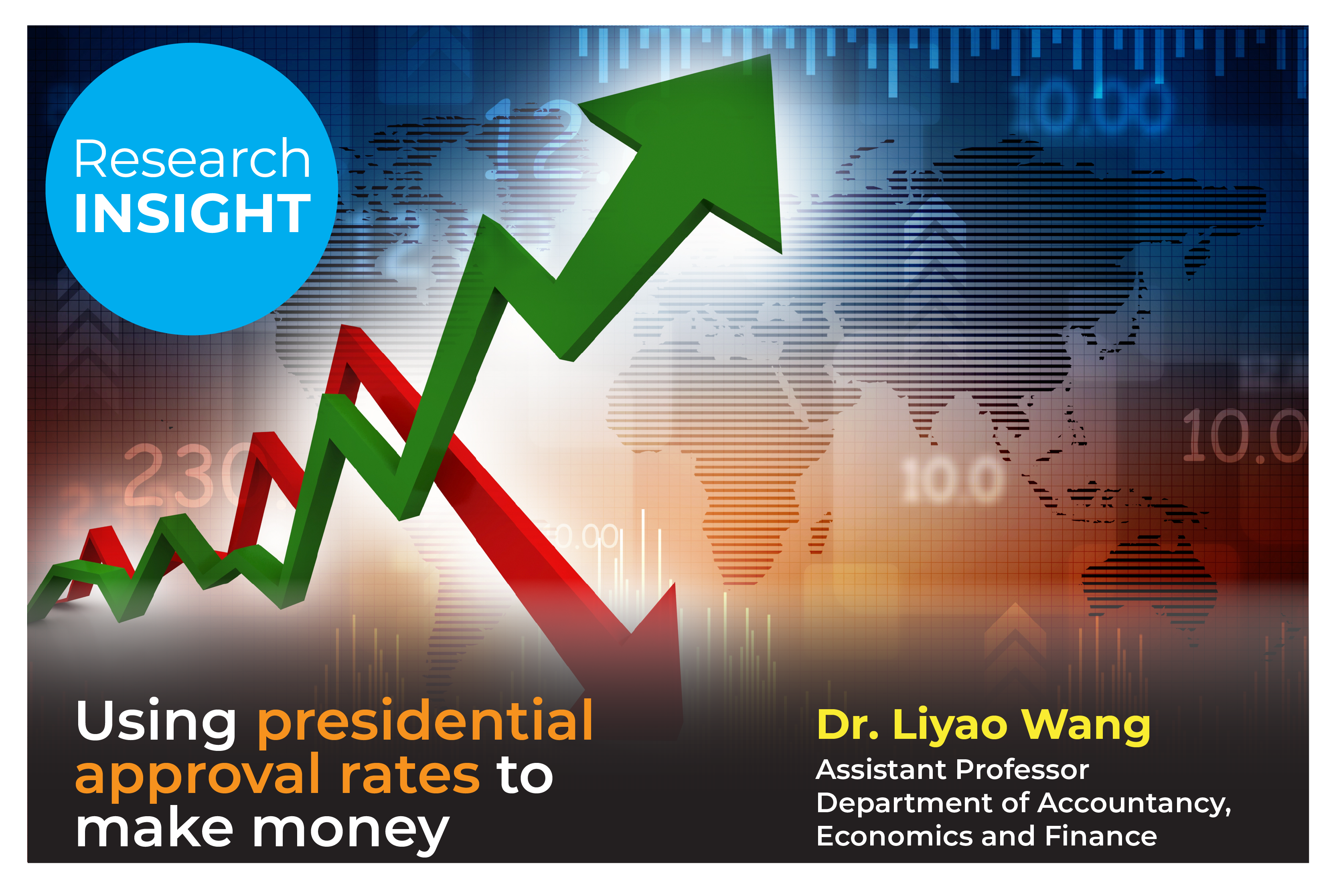School of business - research
Using presidential approval rates to make money


As we brace ourselves for yet another American election showcasing the familiar faces of Joe Biden and Donald Trump - two politicians who have garnered relatively low approval ratings, albeit for contrasting reasons – can we leverage our sentiments towards them for financial gain? While it has long been the case that stock market returns are much higher under Democratic presidencies than during Republican ones, a recent paper[1] delves further into the possibility of surpassing market performance by examining a raft of presidential approval rates.
By constructing a monthly presidential economic approval rating index ("PEAR") from 1981 to 2019 and mapping it against the overall Gallup presidential job approval rating, the researchers find a strong correlation of 65% between these two ratings, with a few notable exceptions such as the Gulf War, the aftermath of the September 11 attacks, and a significant portion of President Trump's initial tenure. Consistently yielding robust cross-sectional asset pricing results, PEAR seems to affirm the essence of the Clintonian maxim from 1992: "it's the economy, stupid”.
While it seems intuitive to assume that the shares of companies – dataset includes all common stocks listed on the NYSE, Amex, and Nasdaq except financial and utility firms, stocks priced below $1 and stocks with missing returns – aligned with the economic agenda of a president would tend to do well, the data actually suggests otherwise: stocks with high betas to changes in PEAR – i.e. stocks which react in synch with PEAR – significantly underperform those with low betas by the tune of 1.00% per month for a year on a risk-adjusted basis (with a peak under Clinton and a low during the Reagan years).
What could explain this mispricing? It appears that investors mistakenly assume that companies whose business models are in synch with a presidential economic agenda – as expressed in a high beta PEAR– will benefit from being aligned with presidential policies and thus prioritise investing in these companies’ shares. For example, biodiesel firm Renewable Energy Group Inc. (NASDAQ: REGI) exhibited a high beta PEAR during the Obama years as investors, anticipating the company to do well due to Obama’s green policy, sent its share price soaring. Conversely, many investors shunned New Concept Energy Inc (NYSE: GBR), a traditional oil company, over that same period. As it became clear that Trump would be replacing Obama, the shares of REGI declined while those of GBR surged, thus rewarding investors who initially bet on the “wrong” firm. This pattern held true across different portfolios and couldn't be attributed to macroeconomic factors or the assumption that such companies would be rescued in case of any setbacks.
Conclusion? While presidential approval ratings – economic or otherwise – can have a major impact on the economy and the stock market, blindly buying high beta PEAR stocks based on alignment with a president's economic agenda may lead to underperformance. So feel free to vote with your heart, as long as you make sure to follow your head when investing!
Reference:
[1] Chen Z., Da Z., Huang D. & Wang L. “Presidential economic approval rating and the cross-section of stock returns” Journal of Financial Economics 147 (2023) 106-131(https://doi.org/10.1016/j.jfineco.2022.10.004)